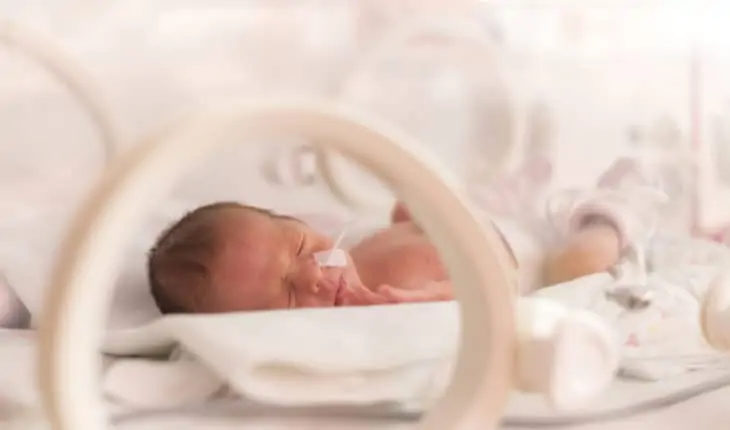A new treatment pioneered by Australian researchers would help better treat premature infants with a type of chronic lung disease, according to new research.
The OPTIMIST-A clinical trial was co-led by Murdoch Children’s Research Institute (MCRI) Honorary Professors including Peter Dargaville, Research Fellow at the Menzies Institute for Medical Research and Staff Specialist at Royal Hobart Hospital; Professor Peter Davis, Consultant Neonatologist at the Royal Women’s Hospital and Dr Omar Kamlin, Consultant Neonatal Paediatrician at the Royal Women’s Hospital.
The trial was supported by the MCRI Clinical Epidemiology and Biostatistics Unit (CEBU), led by Professor John Carlin, and was conducted in 33 neonatal intensive care units across 11 countries.
The multi-centre clinical trial aimed to improve the current standard of care for premature infants and limit the development of bronchopulmonary dysplasia (BPD), a chronic disease of the lung that can have lasting effects on the lives of preterm infants.
The study, published in the Journal of the American Medical Association (JAMA), involved 485 premature babies from around the world who were enrolled in the first hours of life. The trial tested the new Hobart method, developed by Professor Dargaville and his team at the Royal Hobart Hospital in 2009, compared to the standard approach to care.
Due to COVID, researchers were not able to recruit as many patients as hoped. Despite the smaller study numbers, the difference in improvement indicated the clinical gains could have huge effects over time.
Professor Carlin said, “the results suggest that five or more in every 100 of these premature babies stand to benefit, which represents an incalculable boon for each of those families.”
Professor Dargaville said, “around 0.6 per cent of all babies worldwide are born less than 30 weeks gestation and are at high risk of breathing difficulty related to immaturity of the lungs, including a lack of surfactant, a natural substance that lines the airspaces and makes breathing easier.”
Surfactant is regularly given to preterm infants as a medication, but the previous delivery method was invasive, requiring the passage of a large breathing tube into the windpipe.
“The Hobart method involves the placement of a narrow tube in the windpipe to deliver surfactant, which then disperses deeply into the lung as the baby breathes,” Professor Dargaville said.
“The technique is relatively easy to learn and has been used in hundreds of neonatal units worldwide, including those participating in the OPTIMIST-A trial.”
Professor Dargaville said while the rate of survival was not different between those who received surfactant by the Hobart method and the control group, the likelihood of developing BPD was reduced from 45 per cent to 37 per cent.
Further, babies receiving minimally-invasive surfactant therapy were half as likely to require mechanical ventilation with a breathing tube in the windpipe in the first three days, and the need for oxygen therapy at home was reduced by one third.
Professor Dargaville said it was a great privilege and very exciting that what began as an idea had become a therapy of proven benefit for premature infants.
Whether this healthier start to life can have a lasting impact is being examined in a follow-up study where parents of infants involved in the trial are completing an online questionnaire asking about their child’s health and well-being in the first two years after the early birth.
The results of the OPTIMIST-A trial are being presented at neonatal conferences worldwide, and the Hobart method has gained traction in many neonatal intensive care units across the globe.
Clementine Widdup participated in the trial when she and her twin brother Felix were born prematurely at the Royal Women’s Hospital in 2012.
Nine years later, mum Georgia said Clementine was well. “Clementine and Felix are both a picture of health,” she said.
“I am endlessly amazed at the resilience of these very preterm babies – it really has been beyond our wildest dreams. I am quite sure that this is in no small part due to the phenomenal care that they received at the Royal Women’s Hospital.”
- Combination of drugs could prevent thousands of heart attacks - 21st April 2025
- UQ Study Links Poor Teen Diets to Heavy Social Media Use - 21st April 2025
- Gut microbiome could delay onset of type 1 diabetes - 3rd April 2025






